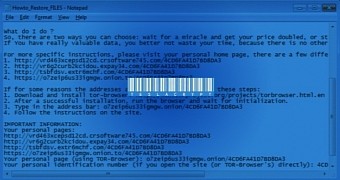In the past few days, a new version of the TeslaCrypt ransomware was released, and security researchers have now detected a massive spam campaign distributing this new threat.
The first signs of something out of the ordinary were initially spotted on the Bleeping Computer forums, where users started complaining about being infected with ransomware.
After further analysis by community members, the ransomware proved to be a new TeslaCrypt version that added minor changes to its code, but these were more than enough to prevent users from using the TeslaDecoder to decrypt their files.
While we believe there is no doubt that BloodDolly will eventually update his TeslaDecoder tool to tackle this latest modification, just as he did in the past, users should be very wary these holidays when opening attachments received via unsolicited email, either if coming from a known person or not.
Scandinavian users are targeted the most
According to Heimdal Security, the company that analyzed the spam campaign, most infections were detected in Europe's Nordic countries.
The spam emails contain a ZIP archive and are using the old "Dear client, pay your overdue invoice" routine. Judging by the theme the attackers chose, they might be targeting businesses and not end users, since companies regularly have a hard time keeping track of unpaid invoices and are more prone to opening email attachments from billing-related emails.
The ZIP file attached to the email is booby-trapped via a JavaScript file, which, when the user decompresses the archive, connects to a C&C server and downloads the TeslaCrypt ransomware in the form of an EXE file.
The Heimdal Security team was not specific if TeslaCrypt installs when launching the EXE into execution or (automatically) when unzipping the file, but let's say you'll be safer if you don't download the ZIP file to begin with.
This version of the ransomware encrypts the user's files with the .vvv or .zzz extensions and asks them to pay a ransom in Bitcoin via a page hosted via an .onion domain on the Dark Web. Current detection rate for this new version of TeslaCrypt on VirusTotal is 3/55.

 14 DAY TRIAL //
14 DAY TRIAL //